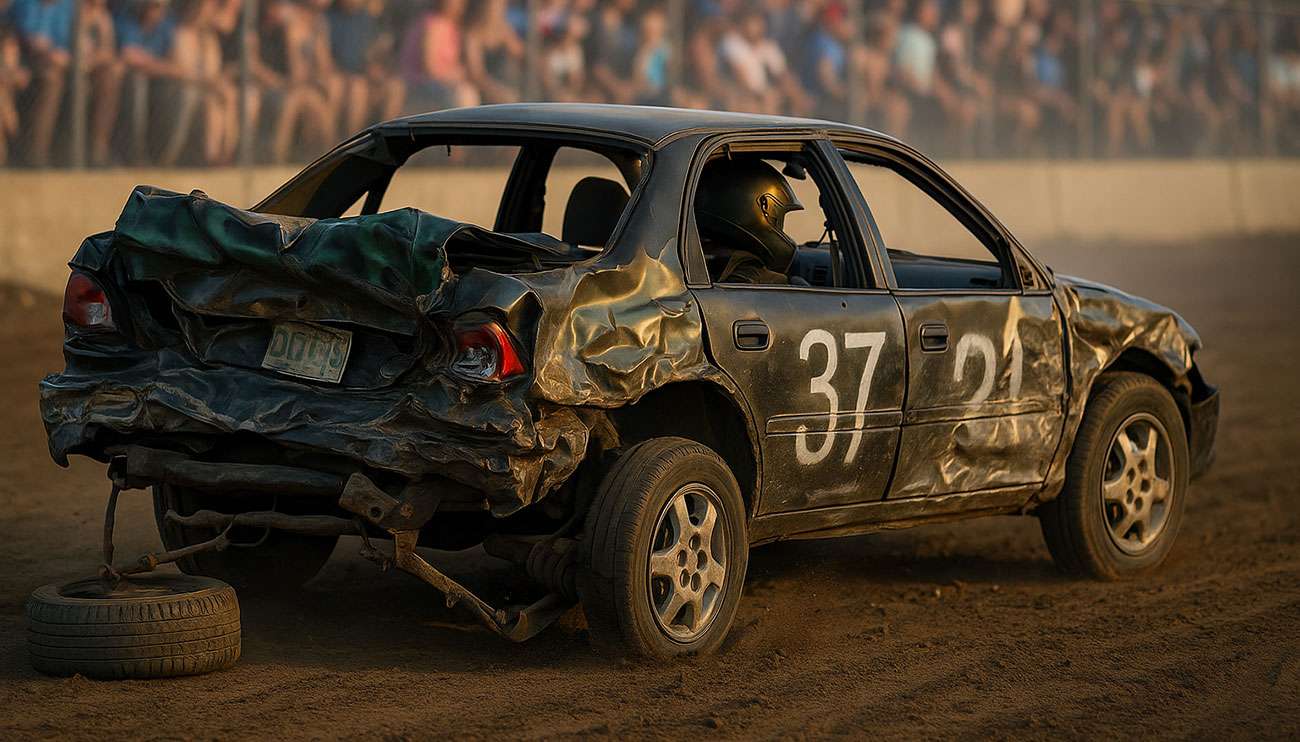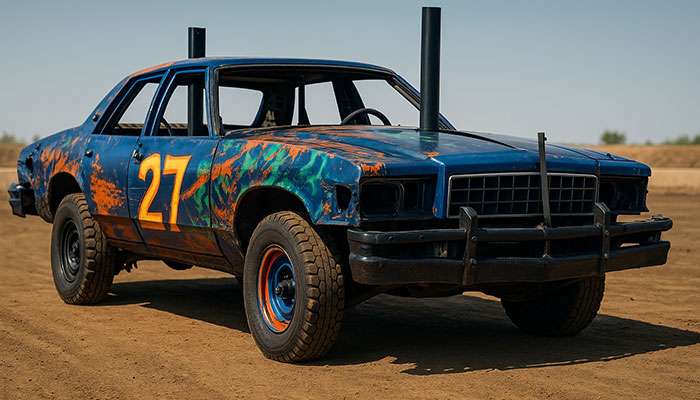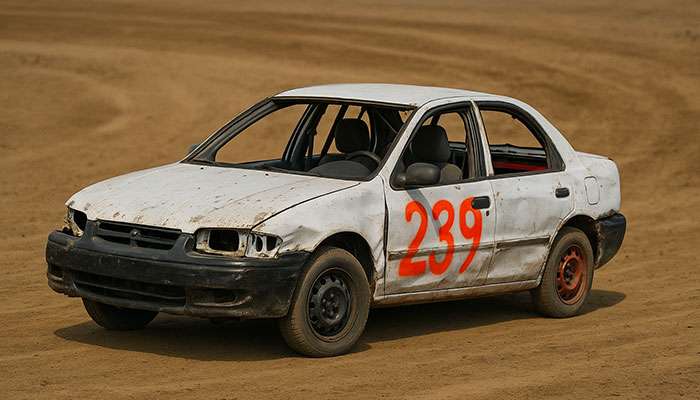Best Cars for Demolition Derby – Pro Builder's Guide 2025

Ask any veteran builder or demolition derby driver, and they’ll tell you: picking the right car is half the battle. From classic big-body sedans to surprising modern sleepers, the “best” demo derby car is more than a matter of taste—it’s about toughness, availability, build potential, and survival odds on the dirt. Drawing on 40+ years of real-world experience, here’s your authoritative guide to the top cars, why they win, and what every newcomer (or seasoned pro) needs to know to build a contender in 2025.
Why Car Choice Matters in Demo Derby
With demolition derbies evolving—and classic iron getting scarce—smart builders balance old-school wisdom with new-era resourcefulness. A well-chosen car gives you:
- Frame strength to absorb (and dish out) hits
- Affordable, replaceable parts
- Ease of stripping, welding, and customizing
- Local rules compliance (many top choices are banned in some leagues)
Above all: the “best” car fits your class, your budget, and your willingness to wrench.

Best Rear-Wheel Drive Cars for Demolition Derby
Rear-wheel drive (RWD) full-size sedans remain the gold standard for most demo derbies. Why? Heavy-duty frames, simple V8 power, and parts availability.
- Chrysler Imperial (1964–68): The legendary “tanker.” Almost unbreakable, often banned—if allowed, it’s a top pick. Huge torque, beefy frame, but getting rare and expensive.
- Ford LTD & Crown Victoria: The “Panther platform” (LTD, Crown Vic, Mercury Grand Marquis) is affordable, everywhere, and famously tough. Police interceptor versions are especially rugged.
- Chevy Impala & Caprice (1970s–90s): Whether you score a “box” or “bubble” body, these Chevys offer big frames and decent parts supply. Wagons add weight and surface area—great for defense.
Pro Tip: Classic RWDs get bid up fast at auction, so look for overlooked wagons or civilian models with solid bones.
Best Front-Wheel Drive Cars for Demolition Derby
Don’t sleep on FWD! Modern derbies see more front-drive cars taking wins, especially in stock and compact classes.
- GM W-Body (Chevy Lumina, Pontiac Grand Prix, Buick Regal): Ubiquitous, cheap, and surprisingly durable. The 3.8L V6 is bulletproof, and the trunk makes an excellent battering ram when driving in reverse.
- Ford Escort (1980s–90s): Lightweight, easy to prep, and tough for their size. First-gen Escorts are ideal for compact or rookie classes, and you’ll often find them for under $500.
- Honda Accord/Toyota Camry (1990s): Not traditional, but they’re everywhere and parts are cheap. Reinforce the front and you’ll have a surprisingly long-lasting entry-level derby car.
Pro Tip: Strip extra weight aggressively and reinforce trunk seams for FWD builds—hit in reverse for maximum damage.
All-Wheel Drive: The Underrated Option
AWD cars are rare in derbies, but under the right rules they’re a wild card. The grip can give you incredible launching power on muddy tracks.
- Subaru Outback (mid-1990s): Non-turbo wagons are strong, with a low-mounted flat-four engine and lots of rear sheet metal to crunch before you’re knocked out.
- Volvo 240/740 Wagons: Some models offer rear- or all-wheel drive, bulletproof drivetrains, and a reputation for lasting longer than the competition expects.
Note: Always check local rules—many events limit AWD or require disabling one axle for fairness.
Bonus Tips from a Pro Derby Builder
- **Build Matters:** The car is your starting point, but smart stripping, bracing, and welding win derbies.
- **Know Your Rules:** Many events ban certain models or require specific safety mods. Don’t get turned away at inspection!
- **Donor Parts:** Keep a stash of axles, radiators, and tires from your donor car—spares save your weekend.
- **Tires:** Derby winners use tough, sidewall-reinforced tires. See our off-road tire selection for proven derby picks.

Key Takeaways
- Classic RWD sedans are king—but getting harder to find
- FWD cars are winning more derbies, especially in compact and rookie classes
- AWD cars offer surprise performance if rules allow
- Build skill and local rule knowledge are just as important as car choice
- Prep your tires and bring spares—no tire, no victory!
Frequently Asked Questions
What is the toughest car for demo derby?
The 1964–68 Chrysler Imperial is widely considered the toughest, but it’s often banned due to its unbeatable frame. For legal picks, Ford Crown Victorias and Chevy Caprices are top choices.
Can you use a front-wheel drive car in a demolition derby?
Absolutely. FWD cars like the GM W-body and Ford Escort are winning more events every year, especially in compact classes. Reinforcement and smart driving make all the difference.
What tires are best for demolition derby?
Choose tires with reinforced sidewalls and aggressive tread for traction. Used off-road or truck tires are popular. Never run worn-out or dry-rotted rubber—your tires are your first line of defense.
What modifications are allowed on derby cars?
Rules vary, but common mods include stripping interior, reinforcing the driver’s compartment, welding doors shut, and bracing bumpers. Always check your event’s rulebook before starting your build.
References


